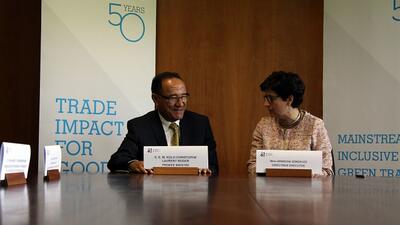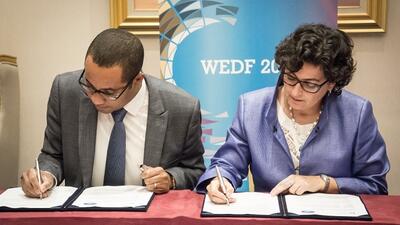
Half of Madagascan firms affected by NTMs
Fifty-three per cent of companies in Madagascar are affected by non-tariff measures (NTMs) and related obstacles, according to a survey of 550 businesses, conducted by the International Trade Centre (ITC). The results of the survey are now available (in French) in the publication Madagascar: Perspectives des Enterprises, which identifies troublesome NTMs and provides technical recommendations and pragmatic solutions to address them.
The survey found that exporters are more affected by NTMs than importers, with 67% of exporters saying that they encounter trade barriers as opposed to 42% of importers. Businesses reported that half of NTMs they experienced are applied by Madagascan authorities, which they say has created an environment conducive to corruption.
Informal payments
Exports of agricultural and food products are particularly hampered by NTMs, with spices being the most affected, followed by vegetables, fish products and lychees. NTMs applied by Madagascar include the inspection of goods, certification and export licenses. These regulations often create procedural obstacles, with businesses reporting that administrative delays at customs and a failure to inform businesses of changes in procedures are frequent barriers to trade. The survey found that informal payments are common practice in all stages of shipping.
In addition, NTMs most frequently applied by partner countries relating to product quality and certification, especially those in the European Union, are perceived to be very strict and difficult to achieve.
The survey found that imports of clothing and textiles are particularly affected by NTMs, with most of these applied by Madagascan authorities. Inspections and other entry requirements account for nearly three-quarters of the trade obstacles reported. Agricultural and food products were also found to be affected.
NTMs, which include a variety of regulations on imports and exports, for example pre-shipment inspection, quotas and rules of origin, as well as technical measures (for example, requirements to product characteristics and quality) have become a major impediment to international trade as companies struggle to comply with an increasingly complex web of policies and, at times, opaque technical standards.
Madagascar: Perspectives des Enterprises includes recommendations to address NTMs experienced by businesses in the country. They include making businesses better informed about export and import requirements and how to address them; developing an information and communication strategy concerning national and foreign regulations; revising and simplifying national administrative procedures governing certificates of origin, and making procedures more transparent; and reviewing national inspection and certification procedures, technical and administrative procedures, and the roles of agencies involved in the process.
ITC is currently working with the private sector in 27 countries, including Madagascar, to identify barriers to trade and provide advice to governments on how to overcome and reduce them. Understanding enterprises’ key concerns with NTMs can assist governments to better define national strategies and policies and take concrete steps to alleviate the problems, for example by building national capacity in complying with technical regulations.
Download Madagascar: Perspectives des Enterprises.
Learn more about ITC's NTM programme.












